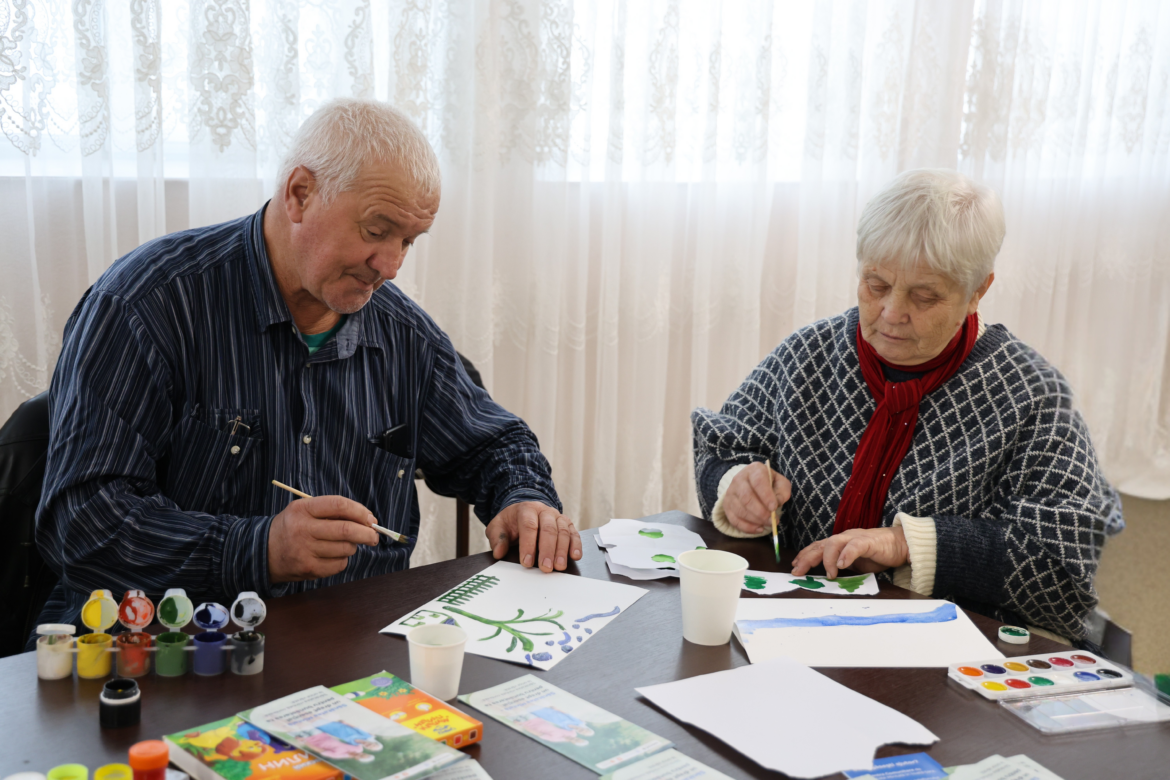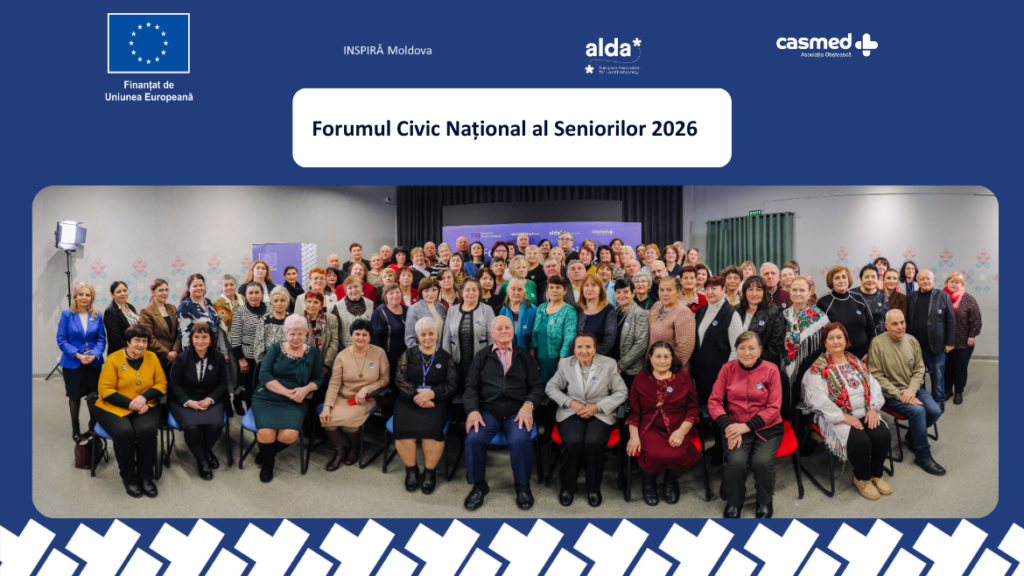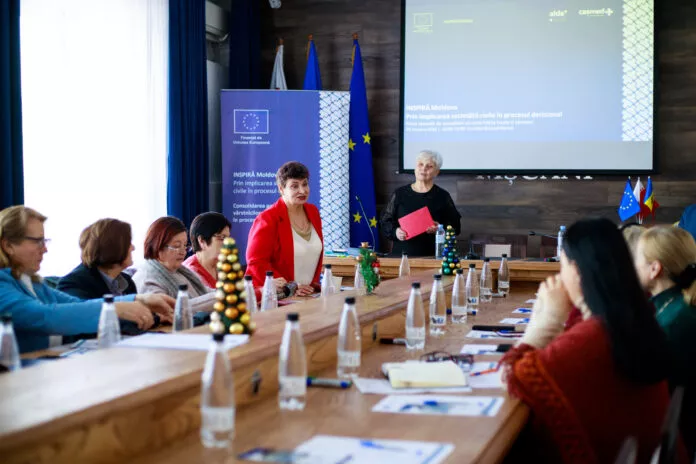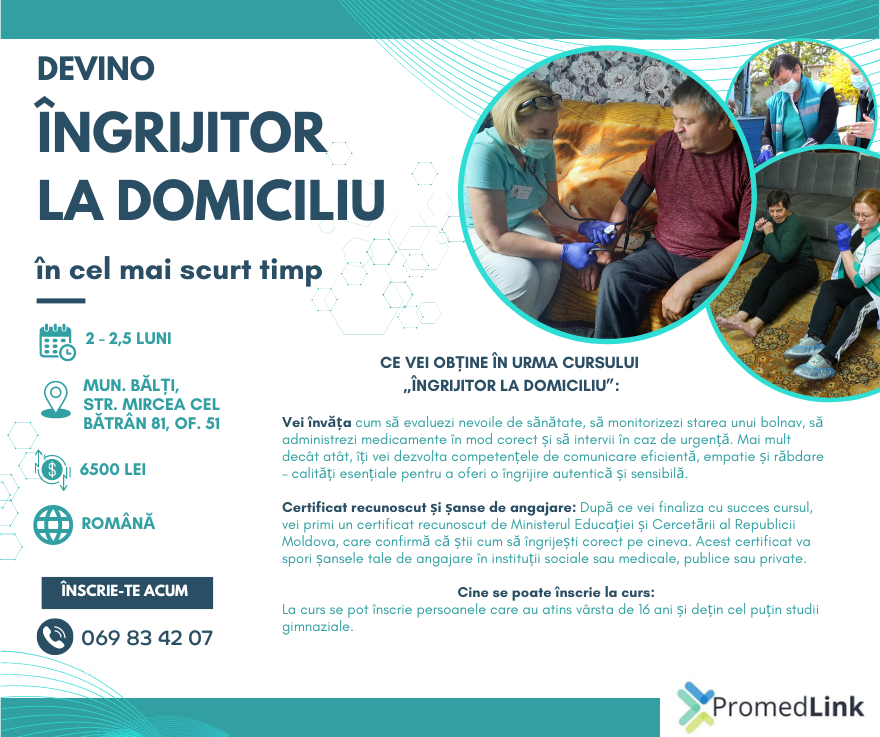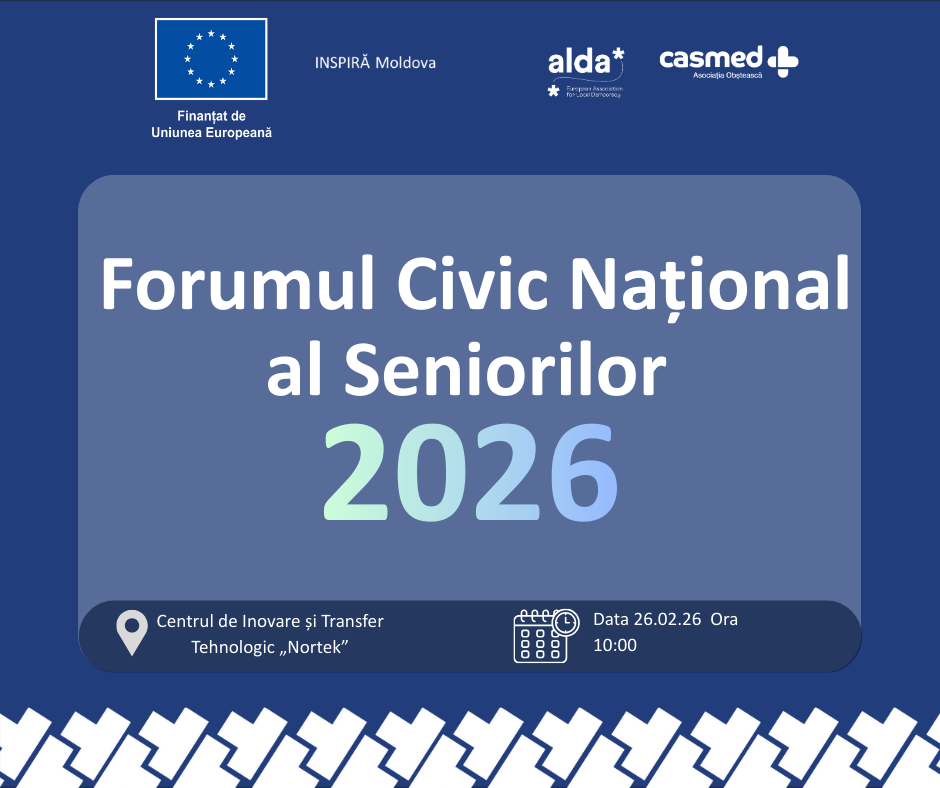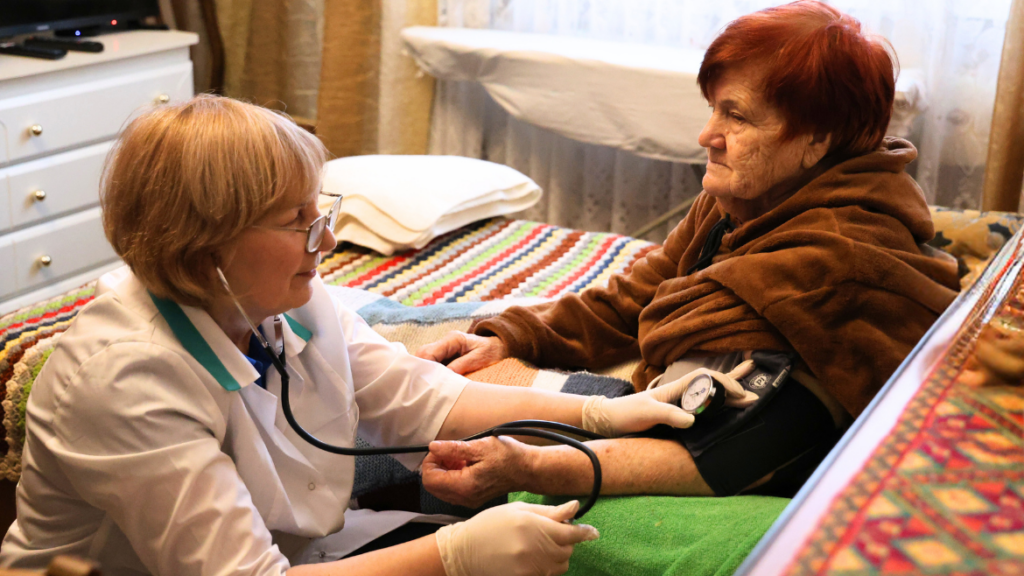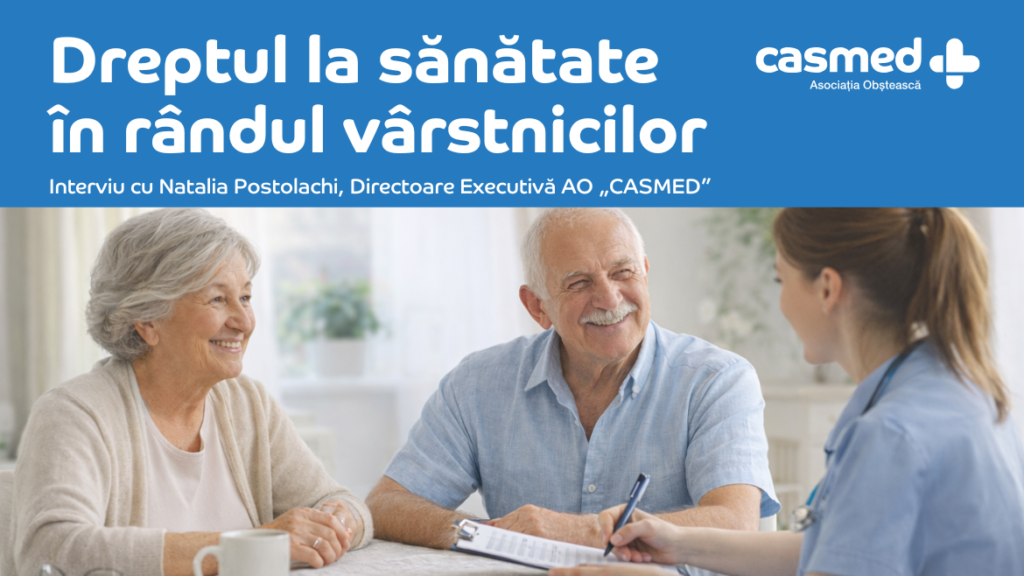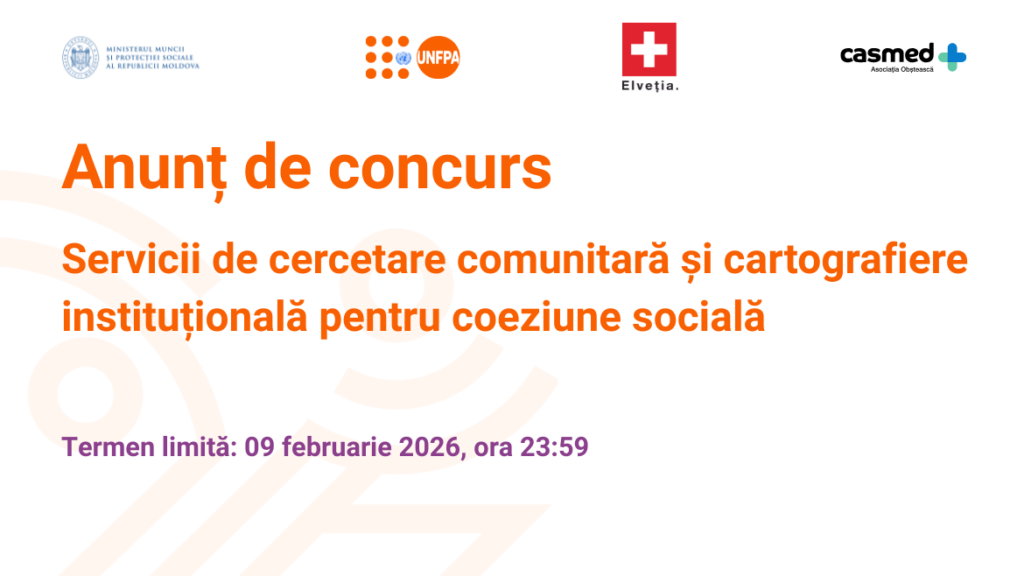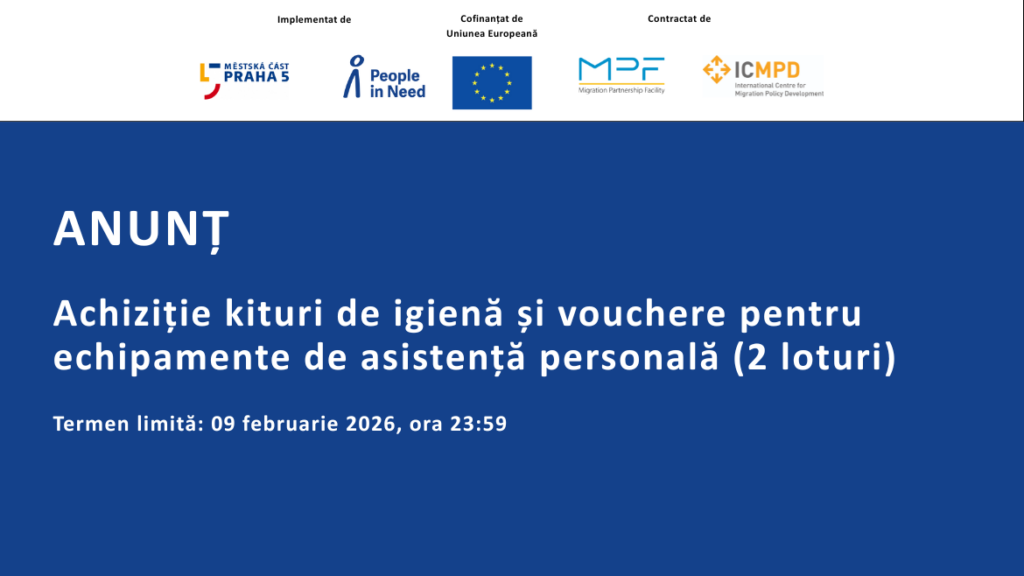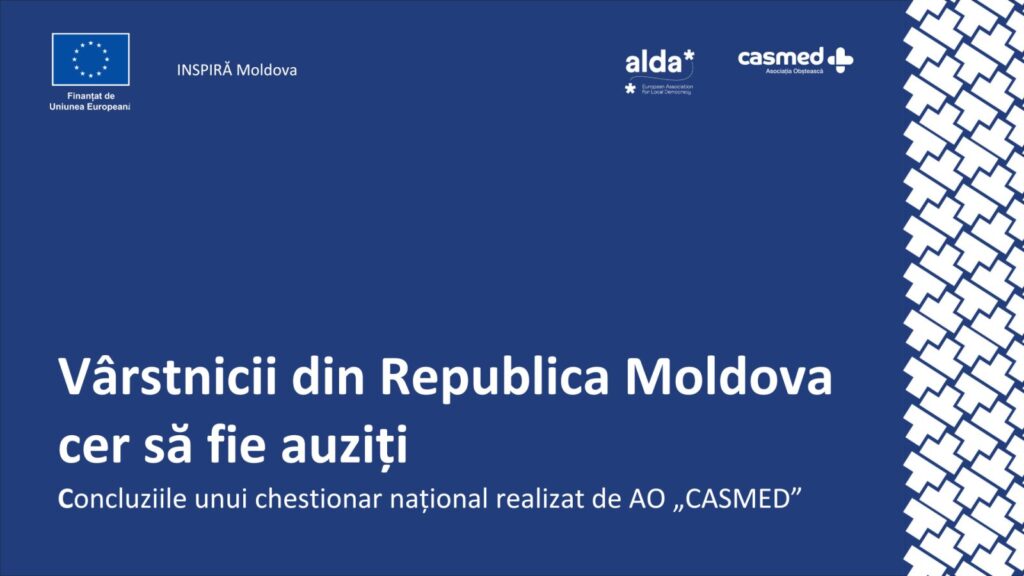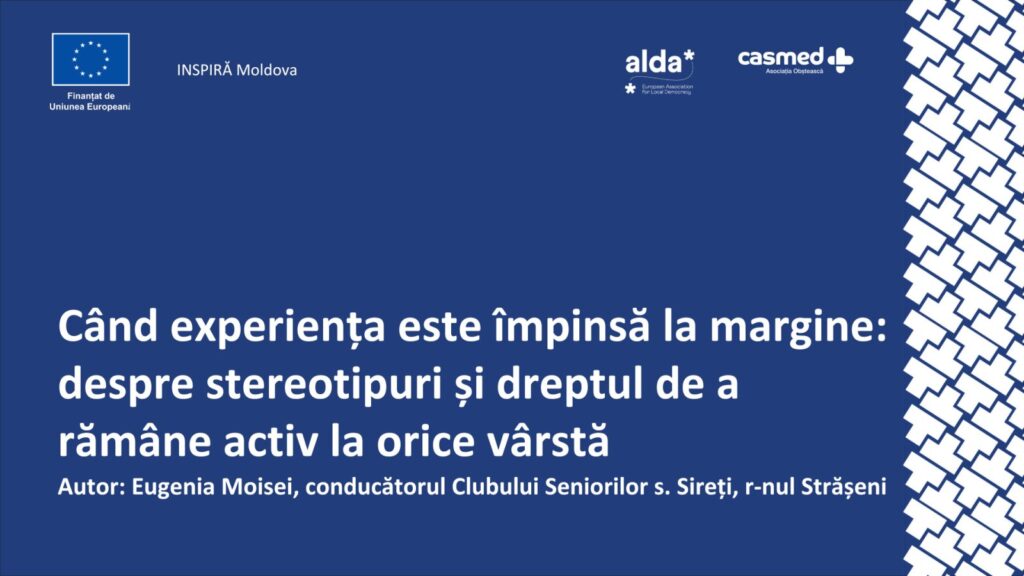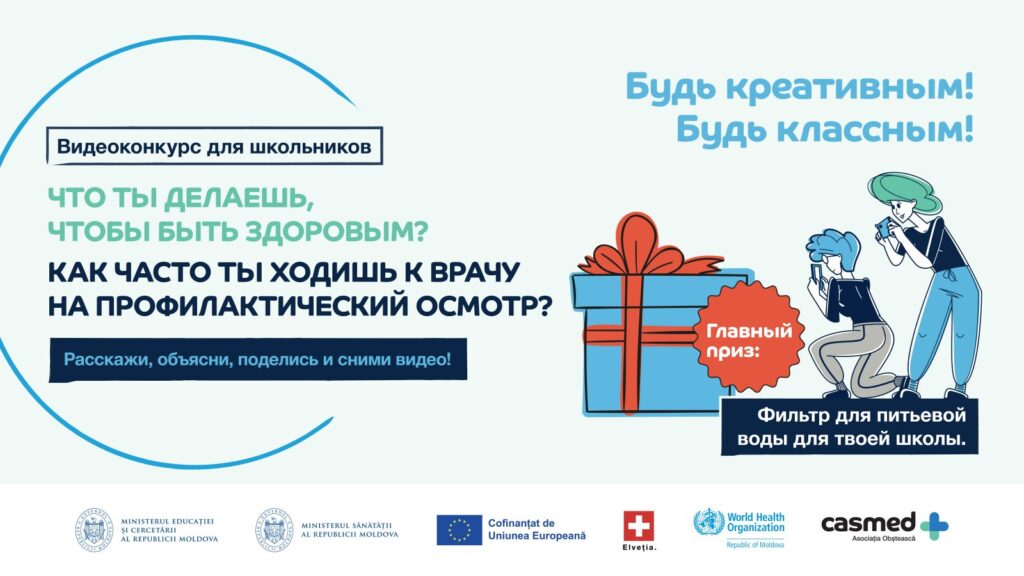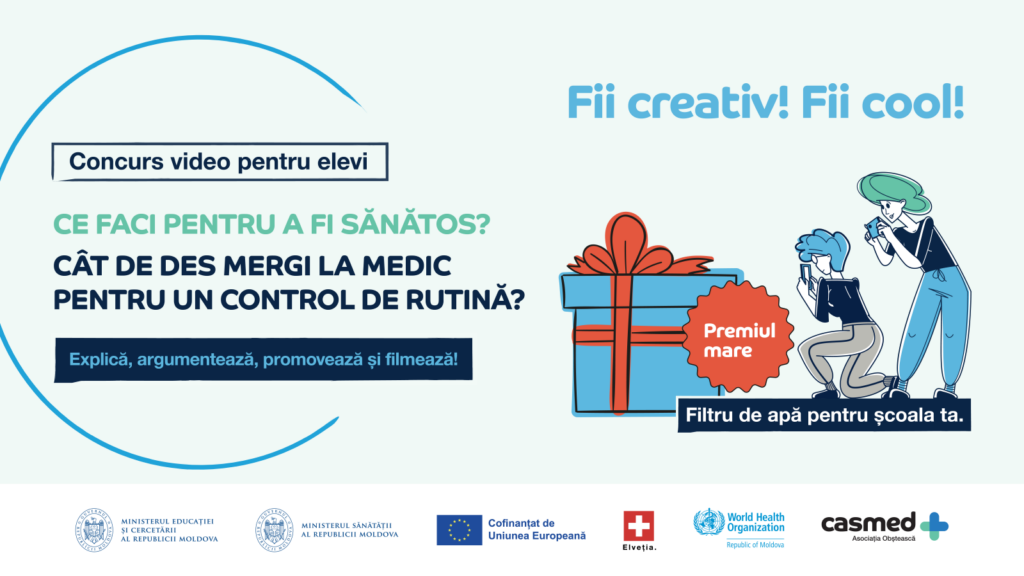Într-o dimineață rece de noiembrie, am ajuns în satul Viișoara, raionul Edineț, pentru a le cunoaște mai bine pe trei dintre doamnele care duc speranța acolo unde, de multe ori, tăcerea a luat locul dialogului. Galina Spătaru, Nadejda Chitic și Livia Guriev sunt facilitatoare comunitare în cadrul proiectului „Sănătate mintală fără bariere” – o inițiativă implementată de AO „CASMED”, cu sprijinul Guvernului Elveției, prin proiectul moldo-elvețian MENSANA – „Suport pentru reforma serviciilor de sănătate mintală în Moldova”.
Cu rucsacurile pregătite și zâmbetul pe buze, cele trei doamne se îndreaptă spre Casa de cultură, unde grupul de seniorii din localitate deja le așteaptă. În sală, mesele sunt aranjate cu grijă: coli de desen, acuarele, plastilină și o prezentare colorată proiectată pe perete. Pe ecran apare o imagine cu fetițe care culeg fructe. „Ce cântec vă vine în minte când vedeți această imagine?”, întreabă doamna Galina. După o clipă de tăcere, o voce se ridică încet: „Merg fetițele la mure. Zărzărel – zărzărel, zărzărică – zărzărea…”. Cântecul se propagă în toată sala, iar chipurile celor prezenți se luminează. Este primul pas dintr-o zi de lucru care nu seamănă cu niciuna alta — o zi în care emoțiile sunt tratate prin conversație, joc și amintiri.
„Aici oamenii vin nu doar să deseneze sau să cânte. Vin să se simtă auziți”, ne spune doamna Galina Spătaru. După momentul muzical, ea le oferă câte o foaie albă. „Mototoliți-o cât puteți!” — se aud hohote de râs. „Acum încercați s-o neteziți.” Seniorii se uită la foile lor și zâmbesc. „Vedeți? Chiar dacă se îndreaptă, urmele rămân. Așa e și cu sufletul nostru — rănile se vindecă, dar urmele rămân undeva adânc.” Este o metaforă simplă și puternică: rănile emoționale lasă urme, dar pot fi înțelese și acceptate. Fiecare participant înțelege în felul său, iar sala se umple de reflecție.
 Urmează un alt exercițiu: foaia se îndoaie în patru, se taie un colț. Toți au primit aceeași sarcină, dar, când desfac foile, fiecare are o tăietură diferită. „Așa suntem și noi — diferiți, chiar dacă trăim aceleași experiențe”, explică doamna Nadejda Chitic.
Urmează un alt exercițiu: foaia se îndoaie în patru, se taie un colț. Toți au primit aceeași sarcină, dar, când desfac foile, fiecare are o tăietură diferită. „Așa suntem și noi — diferiți, chiar dacă trăim aceleași experiențe”, explică doamna Nadejda Chitic.
Doamna Livia Guriev, și ea facilitatoare comunitară, continuă activitatea, împărțind acuarele. „Desenați ceva ce vă amintește de copilărie.” O mână tremurândă conturează o floare, alta desenează o casă, cineva un câmp cu maci. „Eu desenez casa părinților mei. Acolo mirosea mereu a pâine coaptă”, spune una dintre participantele la activitate. Astfel de momente, spun facilitatoarele, nu sunt doar exerciții creative — sunt căi prin care oamenii își regăsesc amintirile pozitive și echilibrul interior.
 Într-o altă cameră, participanții se așază pe scaune, într-un cerc. Începe o activitate de stimulare cognitivă — un exercițiu interactiv care implică atenția, memoria și reacțiile rapide. Facilitatoarea comunitară aruncă o minge către un participant și rostește un cuvânt. Persoana care o prinde trebuie să răspundă imediat cu un cuvânt opus („cald” – „rece”), apoi să arunce mingea mai departe. Pe măsură ce jocul prinde ritm, în sală se aud râsete și voie bună.
Într-o altă cameră, participanții se așază pe scaune, într-un cerc. Începe o activitate de stimulare cognitivă — un exercițiu interactiv care implică atenția, memoria și reacțiile rapide. Facilitatoarea comunitară aruncă o minge către un participant și rostește un cuvânt. Persoana care o prinde trebuie să răspundă imediat cu un cuvânt opus („cald” – „rece”), apoi să arunce mingea mai departe. Pe măsură ce jocul prinde ritm, în sală se aud râsete și voie bună.
 Apoi vine rândul cutiei senzoriale. Participanții, cu ochii acoperiți, scot pe rând câte un obiect din interior — o floare uscată, o scoică, un nasture, o pietricică. Facilitatoarea îi îndeamnă să descrie ce le evocă acel obiect, iar răspunsurile vin spontan: amintiri din copilărie, imagini ale mării, momente de liniște. Astfel, activitatea a transformat lucrurile mărunte în declanșatori ai emoțiilor și ai dialogului, creând o atmosferă caldă, de conectare autentică între participanți.
Apoi vine rândul cutiei senzoriale. Participanții, cu ochii acoperiți, scot pe rând câte un obiect din interior — o floare uscată, o scoică, un nasture, o pietricică. Facilitatoarea îi îndeamnă să descrie ce le evocă acel obiect, iar răspunsurile vin spontan: amintiri din copilărie, imagini ale mării, momente de liniște. Astfel, activitatea a transformat lucrurile mărunte în declanșatori ai emoțiilor și ai dialogului, creând o atmosferă caldă, de conectare autentică între participanți.
 La amiază, cele trei facilitatoare comunitare își pregătesc rucsacurile și pornesc prin sat, purtând cu ele materiale pentru activități, fișe și pliante despre sănătatea mintală. Aerul rece le înroșește obrajii, iar liniștea satului e întreruptă doar de pașii lor pe drum. În fața unei porți, o doamnă iese curioasă la poartă; facilitatoarele o salută cu căldură, îi oferă un pliant și deschid o conversație. Doamna Livia explică blând că pliantele conțin informații despre cum pot fi recunoscute semnele stresului și cum putem vorbi deschis despre stările de tristețe — o tăcere pe care ele încearcă să o rupă, pas cu pas.
La amiază, cele trei facilitatoare comunitare își pregătesc rucsacurile și pornesc prin sat, purtând cu ele materiale pentru activități, fișe și pliante despre sănătatea mintală. Aerul rece le înroșește obrajii, iar liniștea satului e întreruptă doar de pașii lor pe drum. În fața unei porți, o doamnă iese curioasă la poartă; facilitatoarele o salută cu căldură, îi oferă un pliant și deschid o conversație. Doamna Livia explică blând că pliantele conțin informații despre cum pot fi recunoscute semnele stresului și cum putem vorbi deschis despre stările de tristețe — o tăcere pe care ele încearcă să o rupă, pas cu pas.
La marginea satului, o poartă albastră ne anunță următoarea oprire. Doamna Nadejda, de 75 de ani, locuiește singură. Ne primește zâmbitoare, deși emoționată de musafiri necunoscuți. „De obicei vin doar ele trei”, spune doamna. „Facem jocuri, povestim, mă ajută să mai uit de grijile cotidiene. Când vin doamnele, parcă intră soarele în casă.”
Când am ieșit din casa doamnei Nadejda, soarele cobora încet peste acoperișurile Viișoarei, iar satul părea din nou liniștit, aproape adormit.
Despre proiect:
Proiectul „Sănătate mintală fără bariere” aduce sprijin psiho-emoțional direct în comunitățile din raionul Edineț. Scopul său este de a promova sănătatea mintală și bunăstarea emoțională în rândul persoanelor vârstnice prin activități de art-terapie, exerciții de stimulare cognitivă, mișcare, exprimare de sine și socializare.
În prezent, în cele opt comunități implicate — Edineț, Fântâna Albă, Cupcini, Parcova, Viișoara, Corpaci, Fetești și Burlănești — facilitatorii comunitari organizează grupuri de sprijin unde vârstnicii pot vorbi deschis despre singurătate, anxietate, frici legate de sănătate sau îmbătrânire, într-un cadru sigur și prietenos.
Pe lângă aceste întâlniri, se desfășoară vizite la domiciliu pentru persoanele izolate și campanii locale de informare pentru combaterea stigmei asociate problemelor de sănătate mintală. Prin pliante și discuții directe, oamenii sunt încurajați să-și exprime emoțiile, să vorbească despre stările lor și să ceară ajutor atunci când au nevoie.
Proiectul urmărește să ajungă la 400 de seniori implicați direct și la peste 3.000 de persoane informate, consolidând o rețea locală de facilitatori comunitari capabili să ofere sprijin emoțional și să mențină legătura între comunitate și specialiști.
